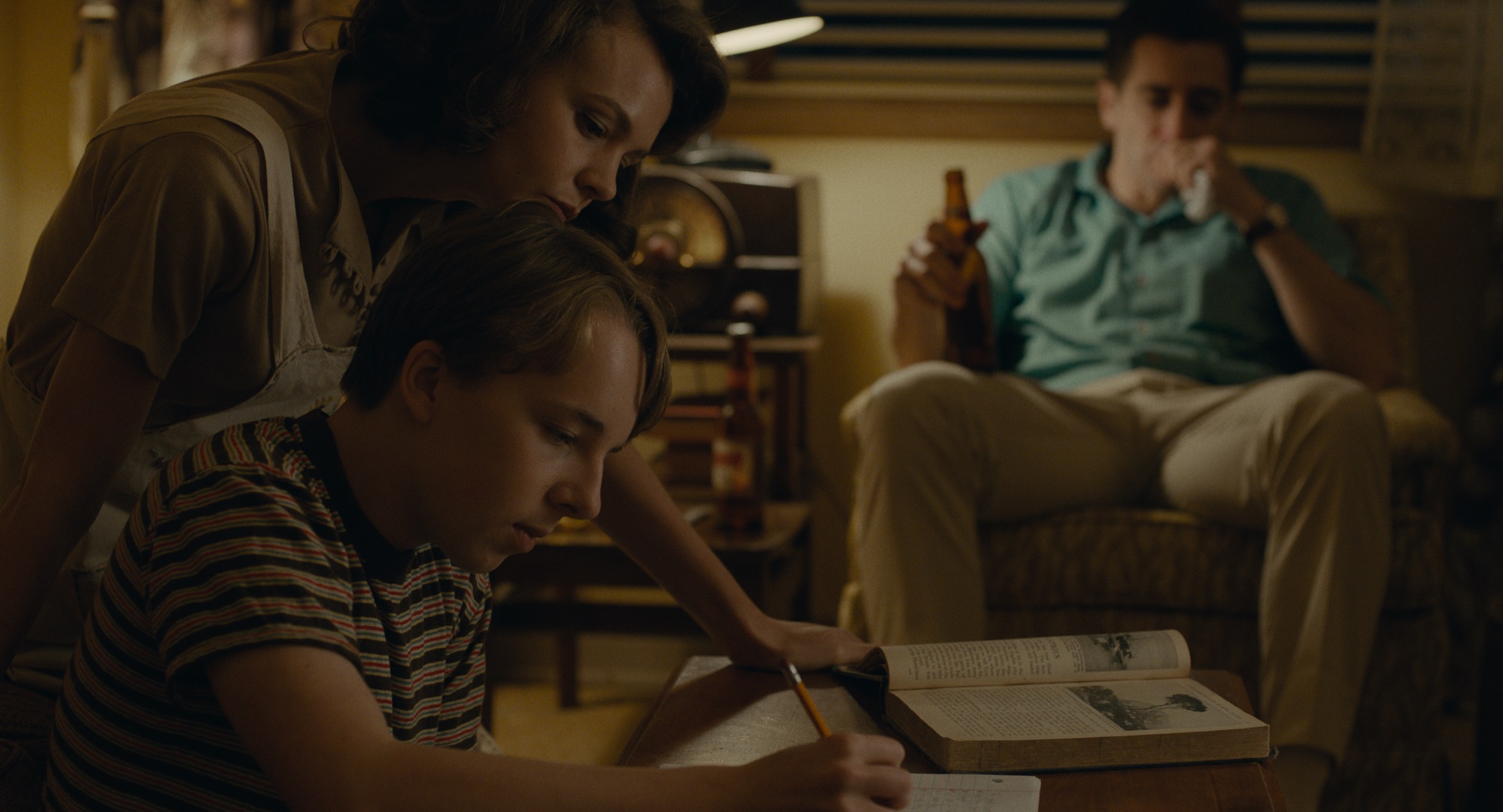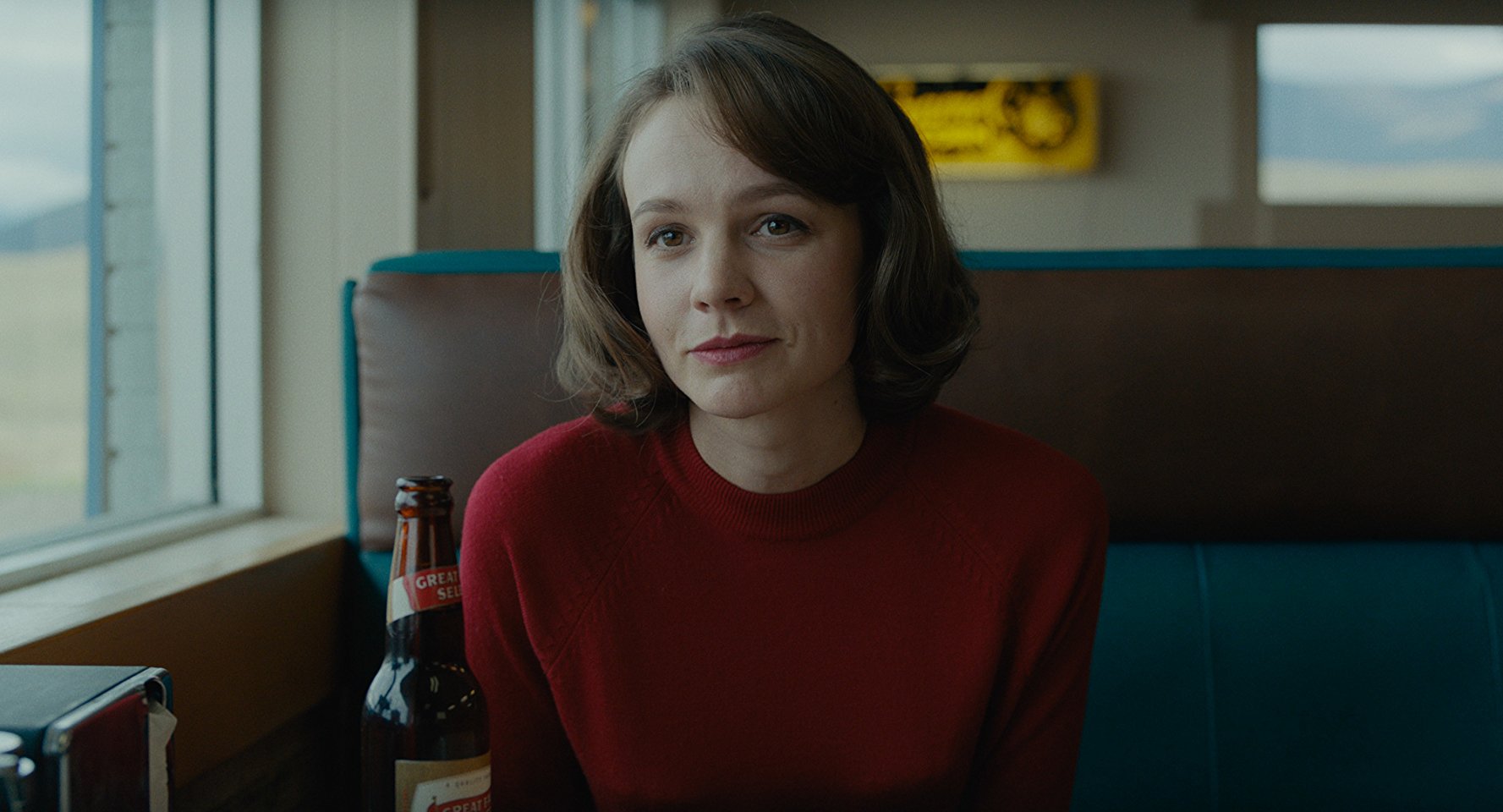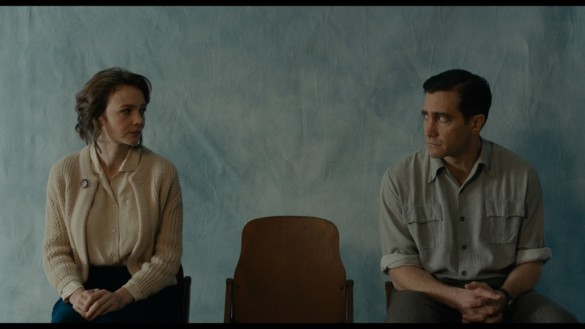Ed Oxenbould, Carey Mulligan, and Jake Gyllenhaal star in the adaptation of the Richard Ford novel
By Kirsten Coachman
From finding inspiration in a Richard Ford novel to creating a fully realized film, “Wildlife” is an exceptional directorial debut from Paul Dano (“Love and Mercy”). Adapted from Ford’s novel of the same name by Dano and partner Zoe Kazan (“The Big Sick”), the film, which stars Ed Oxenbould (“The Visit”), Carey Mulligan (“Mudbound”), Bill Camp (“The Night Of”), and Jake Gyllenhaal (“Nightcrawler”), is a touching portrait of a nuclear family through the eyes of a teenage boy who observes his family unexpectedly unravel at the seams.
While in town for the Mill Valley Film Festival this past October, Academy Art U News had the opportunity to sit down with Dano to learn more about the making of “Wildlife.” The director and co-writer spoke about his reaction to Ford’s novel, the opportunity to work with his friends on this project, and what he took from his own experience as an actor and applied to this film as a first-time director.
You’ve said that you wanted to make films, and specifically this first time out, a film about family. What was it about this story that you sought to tell cinematically?
I hope to make many different kinds of films, but I kind of just always had a hunch that that would be where I would start. I had an uncanny, sort of personal reaction to this book and almost just everything about it; the characters, the sort of mystery of who our parents are–that feeling. There was a lot of love even though there was so much struggle and pain. We approached it with compassion and I felt like that fits me. I don’t want to condemn the parents. It’s more like they’re human and we’re just kind of witnessing their struggle.
But even stylistically, one of my loves of how I would want to make a film, I’ve always responded to things that are kind of spare or I liked like the illusion of simplicity, you know, when something seems simple, but it’s actually really complex. And the book, the language of the book is like that; it’s kind of lean, but it’s somehow really poetic at the same time.
I read the book, and I liked how you adapted it for the screen as well as the film’s ending. How did you go about figuring out where you were going to stay true to the text and where you wanted to divert to something else?
Before even optioning it, one of the things I was thinking about was the ending, the last kind of part of the book, which is not a film. When I thought of what the ending might be—because in the book it’s only in one sentence pretty early on, like, Joe gets a job at a photo studio—and the final shot is when I felt like there was actually a film there. Then it kind of had a backwards ripple effect of like, “Oh, that’s the entire film,” the sort of family portrait.
There were some things that felt big even though they’re not that. [The book] is looking from the future back, and I didn’t want to use voice-overs, so making it present tense and how do you make an image or action out of some of these feelings. And it took time, because I did love the book, so it takes time to kind of go, “Oh, you know what? I don’t think that works. I don’t need that.” And then you start to just follow the characters in the film. It starts to become its own thing.

Carey Mulligan as Jeanette Brinson, Ed Oxenbould as Joe Brinson, and Jake Gyllenhaal as Jerry Brinson in Paul Dano’s “Wildlife.” Courtesy of IFC Films. An IFC Films Release.
You’ve worked with both Carey and Jake before, just wondering what it was like working on your directorial debut with your friends? Also, where did you come across Ed for the part of Joe?
We were so lucky to find Ed, because the film is so reliant on his thoughts, and a lot of kids, they kind of have a natural essence, but you’re more capturing the performance. Ed’s a real actor. It was clear on his audition tape. And Zoe and I kept being like, “I think he’s a real actor. I think this is the kid.” And it allowed me to make the film I wanted to. I didn’t have to cut around Ed, and Carey and Jake didn’t have to work around a kid’s performance or help him. He was there. He’s from Australia, which is crazy. I never thought I would have cast a kid from Australia for this film. So I really feel lucky we found him and he was a great collaborator.
Carey and Jake, I was just, again, also so lucky that they said yes and I was really excited to see Carey get the chance to maybe play somebody a little more messy. It just felt exciting to me for her. And Jake to do something more classically American. I think I had just seen a couple of really great but kind of big characters. I can’t remember [exactly]. It was maybe “Nightcrawler.”
And I knew Carey and Jake had wanted to work together. I loved working with them. I was surprised that they gave me so much trust because they are so experienced and so good, but they were really great and I feel like it’s a little bit like parenting where it’s all Carey and Jake, I’m just trying to set up the right atmosphere to give them the chance to do their best work. … Let’s not leave a scene without feeling like we gave it everything we have. So really being a partner for them and pushing them when they needed to but also just making sure that they got to do their work.
As you mentioned, Carey’s character is a little messy and kind of struggling to find her identity. Her character Jeanette has that great diner scene with Ed’s character Joe. How did you approach that scene to show that struggle she’s going through?
I don’t know if it ever happened to you, but when you’re a kid, like when your parents say something to you that is surprising, or that you don’t understand, or sort of confusing, or is actually sort of out of place or maybe inappropriate—I think it’s probably happened to most people in some capacity—I just really loved that. For me, I don’t want to be reductive about Jeanette and that’s part of what I liked about the character was that I think she’s been a really good wife and mother for 14 years, but, I think her husband’s kind of broken a promise. The rug got pulled out from under her, you know, waking up one day and [feeling] my life’s gone by. And as a woman, in particular, and even more so at that time, [when] parts of yourself don’t get used, like there’s no outlet for them, they had to be tucked away, and so they all just come roaring out. So the diner scene, I think what you’re talking about is there, she’s trying to understand how she got there.

Carey Mulligan as Jeanette Brinson in Paul Dano’s “Wildlife.” Photography by Scott Garfield. Courtesy of IFC Films. An IFC Films Release.
The story follows Joe watching this dissolution of his parents’ marriage and how he processes what he’s seeing. As director, were you ever tempted to maybe follow Jeanette or Jerry on their own path and did you have to cut or dial something back in order to solely focus on Joe’s narrative?
In the writing, we were kind of exploring a little bit more about Jeanette and Jerry and then, ultimately, we started to realize that the power was in the lack of information because that’s what the kid has. So we cut stuff that we’d written. This was early in the writing, but I think I was curious about the characters. You’re getting to know them, you want to understand them, but ultimately Joe does not have access. By going that avenue kind of keeps it on your toes. You’re learning the information the way he is and you don’t quite know everything, but you get probably enough pieces and it keeps being revealed. And suddenly, at that dinner table scene [at] Warren Miller’s, Joe’s like, “Wait, what? I didn’t know you felt that way.” Or about something to do with their past or college or what you know. [It] ended up being the most powerful way [to tell the story], but we did try.
The story takes place over a fairly short amount of time. Did you find that that allowed you to explore the characters more during such a specific time in their lives?
Yeah, that was a challenge actually, because the first part of it, we sort of wanted there to be just enough time to feel the marriage, kind of the cracks in the glass, just cracking a little bit here and there. And then suddenly, once it breaks, the time period is shorter once Jerry leaves. He’s not gone that long. And I think that’s just a way to draw them. It’s like a small fire turns into a big one pretty quick. It doesn’t have to take a lot of time, and the crisis element of it is that it happens so quickly. If it happened over too much time then it’s [a] different kind of problem. I think this one is both of these parents just kind of implode.
What did you take from your experience of being an actor and apply to directing this film?
Well, I feel really lucky that I knew what I wanted out of my set. I know, as an actor, I like it when the set feels a certain way, and I’ve seen when the crew is involved in a certain way and how that contributes to the atmosphere. There [were] just a lot of things about what kind of set I want, because I’ve been on so many different ones and saying, “I want this set to feel like…” That was a nice thing to be able to know that I wanted. I’m definitely working with the actors, I know some of the things that are going to come up for them and how to help. And in the edit room, too, to be a good set of eyes on their behalf, to find the truth of the character and do right by their performance.
What advice do you have for students that are getting started in acting, directing and writing?
Honestly, one of the most important things that I would say, because I remember being young and you sometimes you hang onto [things]; I love inspiration, so like reading about writers, painters, actors, whatever, but not like in a biblical way, meaning like I really think the most important thing you can do is cultivate your own personhood. Take what hits you and don’t be afraid to throw away something that doesn’t. I think you should always try it because we’re all learning, so if the director says, maybe you give it a try, like a note, I try it and if it doesn’t work, it doesn’t work. I think figuring out who you are is such a big part of it. Writing is hard. Directing, I mean, I just love movies and watching movies and reading about [them]. These are fun things to study. Then I think part of it is just hustling and working hard. I think finding what excites you is really lucky.
This interview has been edited and condensed.
“Wildlife” is now playing in San Francisco.
